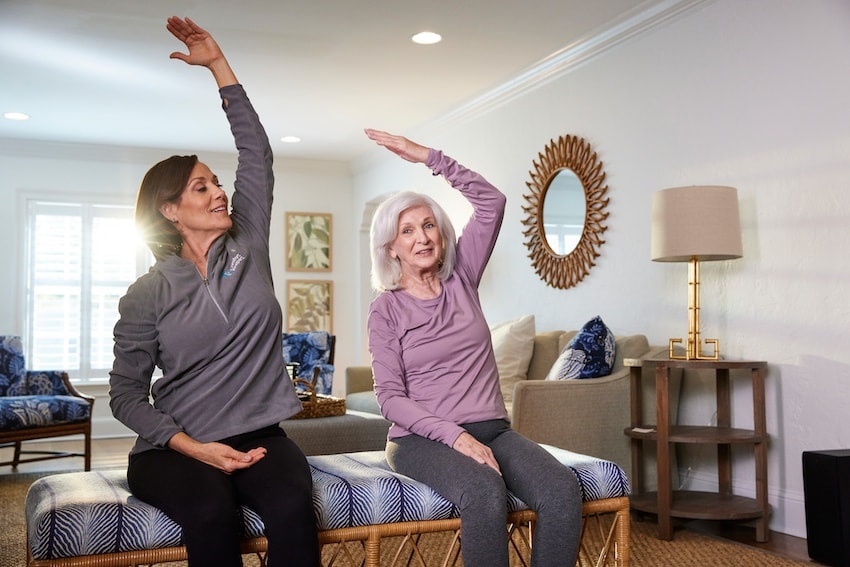Non-Medical Suggestions for Alzheimer's Care and Dementia Care
Alzheimer's care and dementia care can be made less frustrating for the caregiver and the person being cared for with a better understanding of and respect for the feelings of confusion, agitation and anxiety experienced by a person with these conditions.

Caring for a person with Alzheimer's disease or other dementia-related condition is challenging. But Alzheimer's care and dementia care can be made less frustrating for the caregiver and the person being cared for with a better understanding of and respect for the feelings of confusion, agitation and anxiety experienced by a person with these conditions.
Following are a few ideas for providing a calming environment conducive to an improved dementia care experience:
Activity and Exercise
Regular activities and exercise are essential for everyone's physical and mental well-being. Persons with dementia such as Alzheimer's will be less agitated if offered and involved in activities that interest them. The activity should be a planned component of Alzheimer's care and dementia care.
Nutrition and Meal Time
Alzheimer's may affect a person's sense of taste and smell and the ability to feel hunger or fullness. Eating may not be as pleasurable as it once was, and a person with dementia may refuse food even on an empty stomach or request a meal right after eating.
As a result, people with dementia are at greater risk for malnutrition and dehydration, which in turn may make the person more confused.
To promote eating, serve meals in a quiet place, free of distractions, with your loved one facing a wall. Keep the room temperature at a comfortable level as persons with Alzheimer's tend to be more sensitive to rooms that are too hot or cold.
Wandering and pacing is a common behavior for persons with dementia, even at meal time. In this case, offer finger foods that can be eaten on the move. For those who can sit at the table for only a short time, calorie-dense foods such as peanut butter or dried fruit may be the answer. High protein drinks and food bars are another alternatives.
Dealing with Agitation
Arguing with an agitated person with Alzheimer's is counterproductive. Be calm and reassure your loved one that you are there to help. Distract him or her with a pleasing activity, such as music or looking at photos.
Helping with Personal Care
In providing dementia care and Alzheimer's care encourage your loved one to do as much personal care for him or herself as possible--with your guidance. Be prepared to provide reminders of what comes next. It may be helpful to pass the soap or a towel at appropriate times.
As with all plans of care, review these non-medical suggestions with the seniors' primary physician to ensure they are appropriate for the senior before implementing them into a routine.
Sign up to receive helpful info right to your inbox.
We understand choosing an in-home care provider can be a difficult decision, and we want to make your journey as easy as possible. We're here to support you by providing helpful senior care tips and information on in-home care and senior health and wellbeing topics.
Start a Job with a Purpose
Uplifting training and support for you every step of the way.
Apply to be a caregiverEditor Picks
Check out some of our most popular resources on Alzheimer's and Dementia care.








